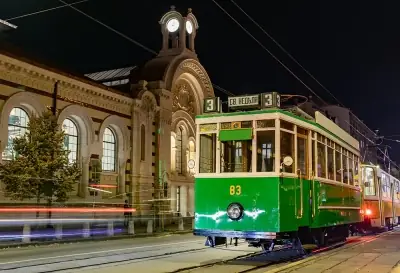
Sofia, Bulgaria – The Municipal Council of Sofia has approved a controversial proposal to discontinue two night bus lines and limit the operation of others, despite strong public support for maintaining the service.
The decision, which was pushed forward by Vanya Grigorova of “BSP for Bulgaria” and Carlos Contrera from VMRO, will see night bus lines N3 and N4 completely shut down, while N1 and N2 will operate only on Fridays and Saturdays.
Grigorova justified the move by citing low passenger numbers between 23:30 and 04:00, arguing that maintaining the service in its current form was unsustainable.
She pointed to the strain on daytime transportation, specifically referencing line 72, which had been affected due to the allocation of resources toward night transport.
Comparing the night bus initiative to an underdeveloped project, Grigorova stated that it was akin to a “premature child” struggling to overcome its operational challenges.
The decision has sparked immediate criticism, with opposition figures and public transport advocates condemning the move. Boris Bonev, a member of the WCC-DB-“Spasi Sofia” coalition, took to social media shortly after the vote to express his frustration.
He accused the coalition of GERB, BSP, TISP, Blue Sofia, and breakaway parties of ignoring the voices of Sofia residents, pointing out that over 400 citizens had submitted letters in favor of preserving night transport.
“We will not give up,” Bonev wrote, vowing to continue advocating for the restoration of the service. He stressed that night transport remains an essential public service for many residents, including night-shift workers and young people who rely on it for safe and affordable travel across the city.
While he expressed confidence that the service would eventually be reinstated, he acknowledged that the timeline for such a reversal remains uncertain.
The discontinuation of N3 and N4 marks the latest development in Sofia’s long-standing struggle to maintain an effective and financially viable night transport system.
Launched in 2018, the night bus service was initially seen as a progressive step toward modernizing the city’s transportation network. However, low ridership, funding concerns, and shifting political priorities have repeatedly put its future in jeopardy.
Critics argue that the city should be investing in ways to improve and promote night transport rather than dismantling it. Suggestions have included better route optimization, enhanced public awareness campaigns, and collaborations with businesses that rely on late-night operations.
Meanwhile, supporters of the decision maintain that the night bus service was a financial burden that benefitted only a small fraction of the population. They argue that reallocating resources to strengthen daytime transport will serve a greater number of commuters and improve overall efficiency.
As the debate over night transport in Sofia continues, residents and advocacy groups are expected to push for further discussions on the matter.
Whether the service will make a return in the near future remains uncertain, but for now, Sofia’s night travelers will have fewer options for getting around the city after dark.
This article was created using automation technology and was thoroughly edited and fact-checked by one of our editorial staff members
